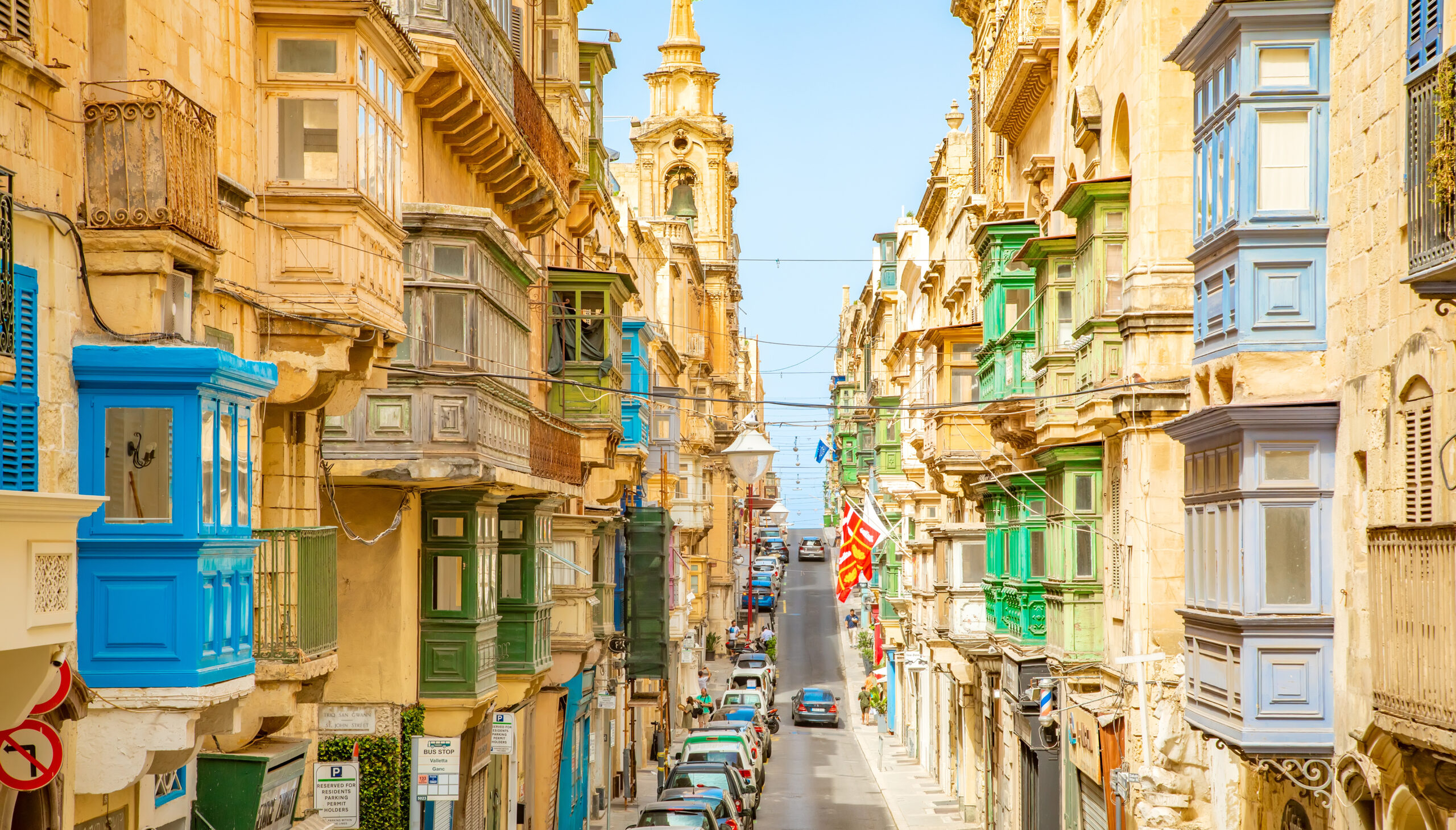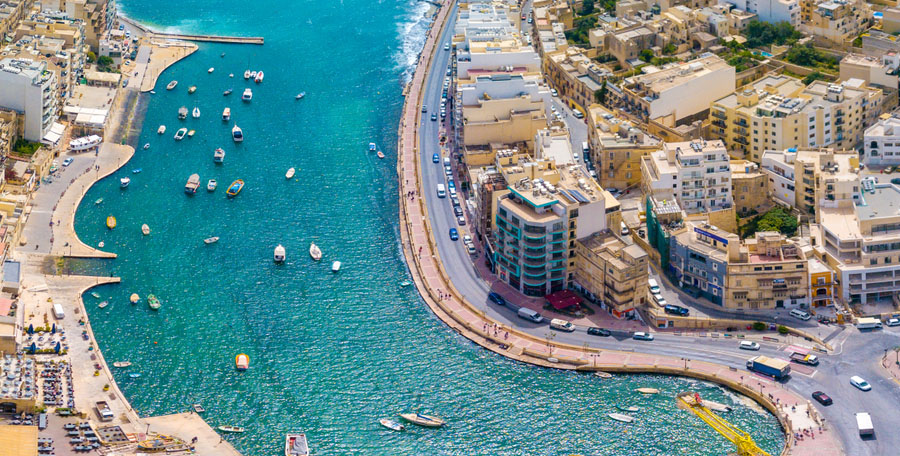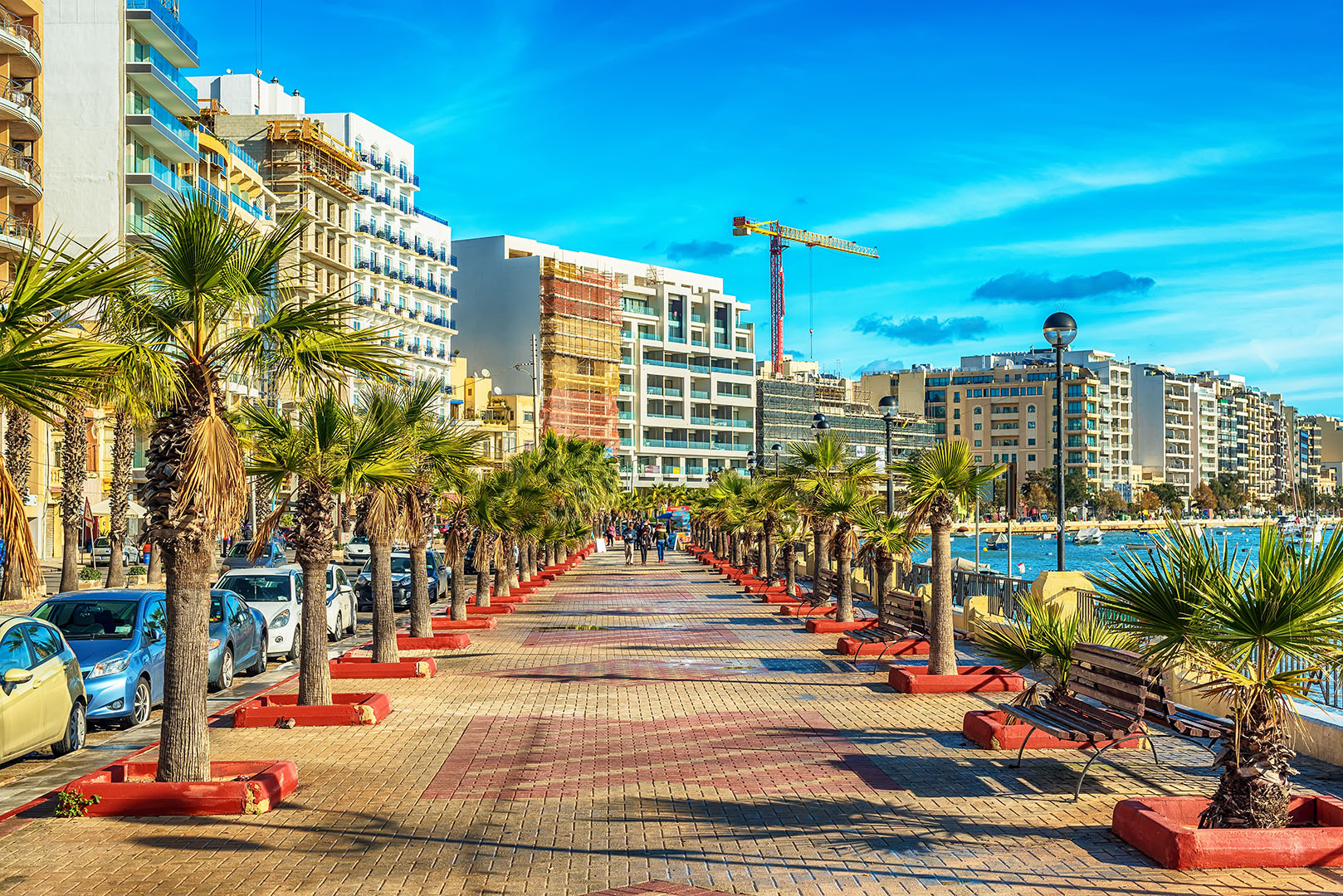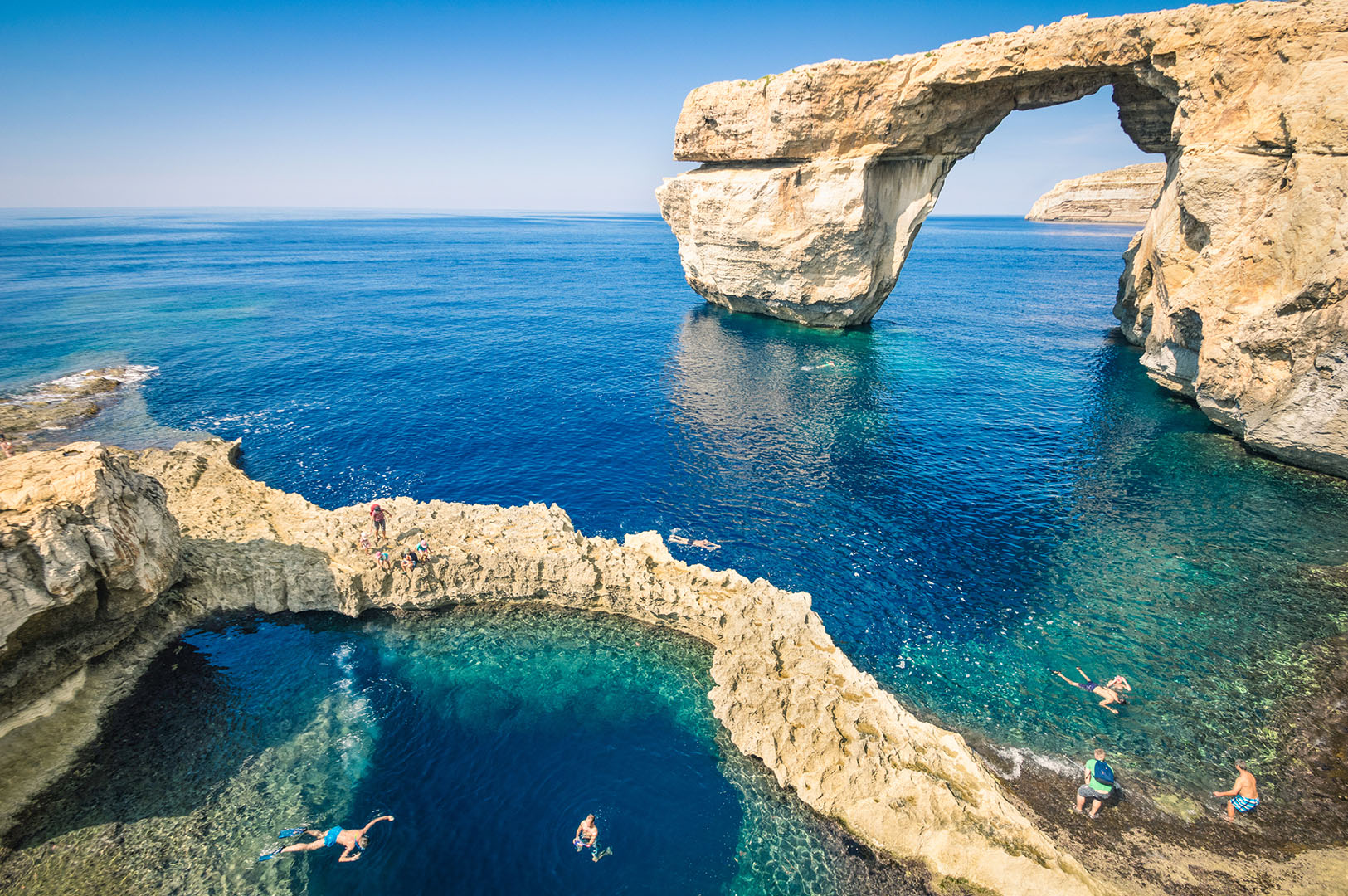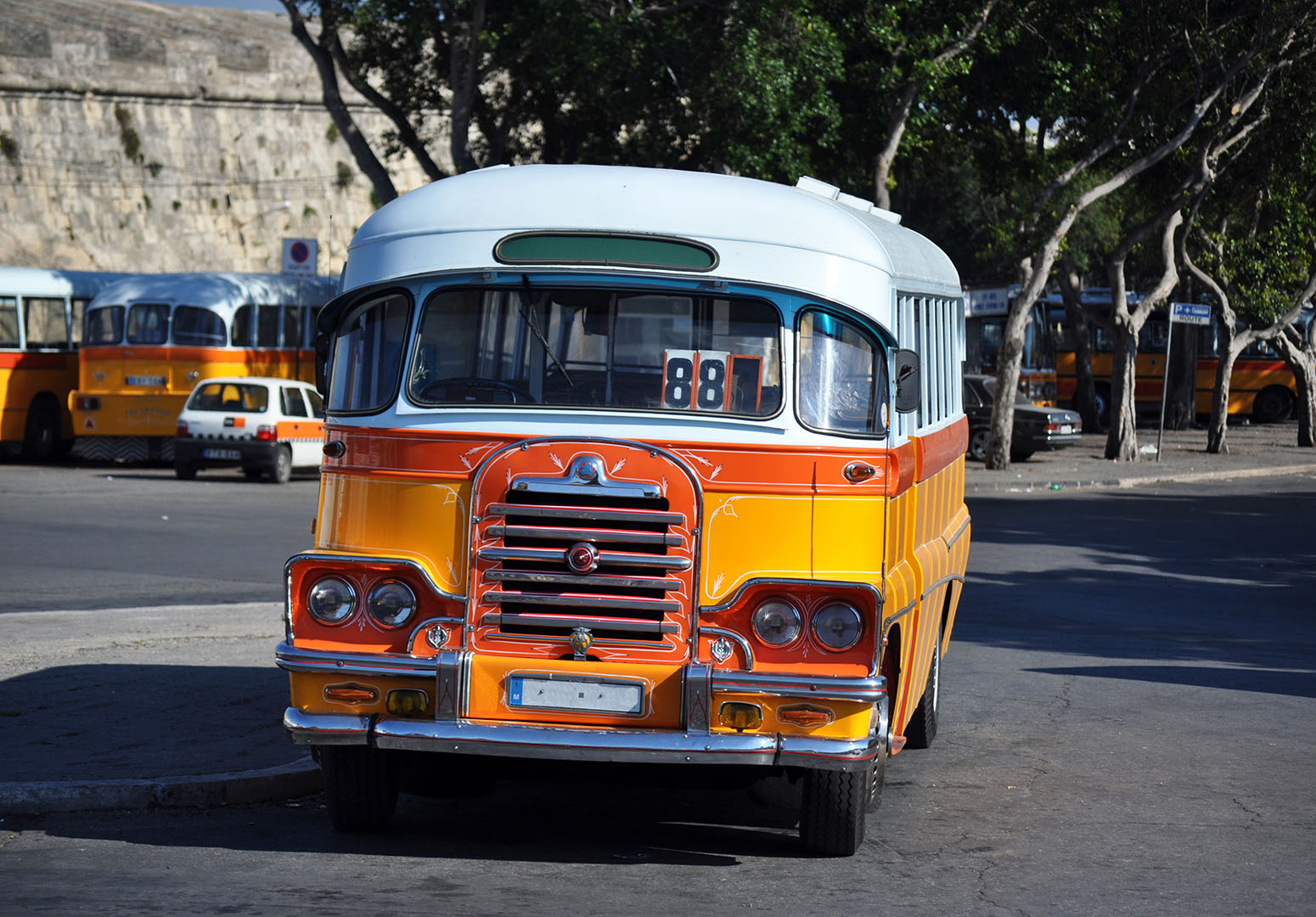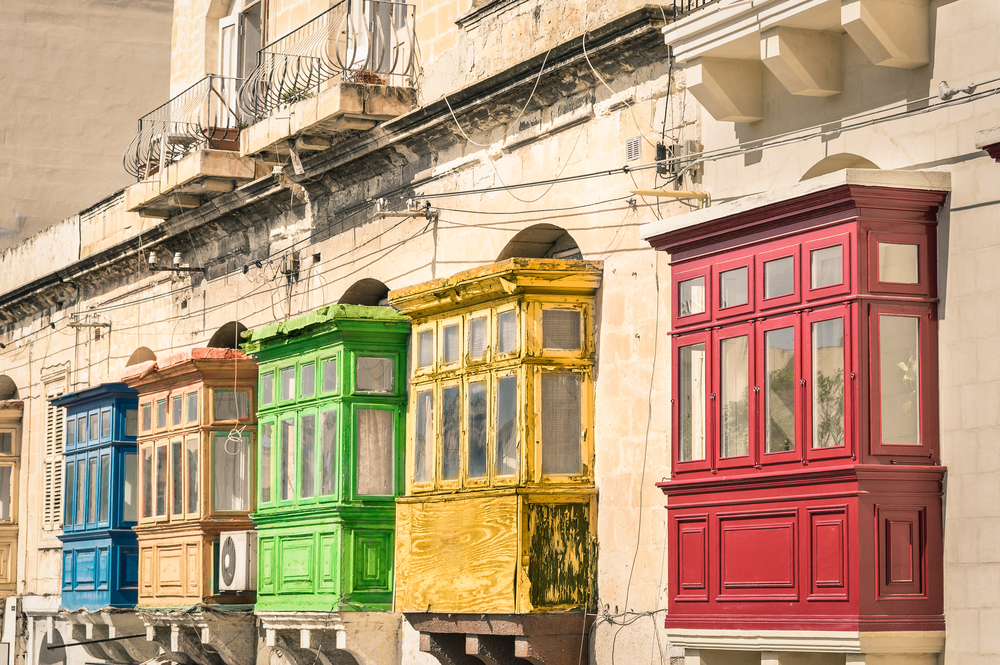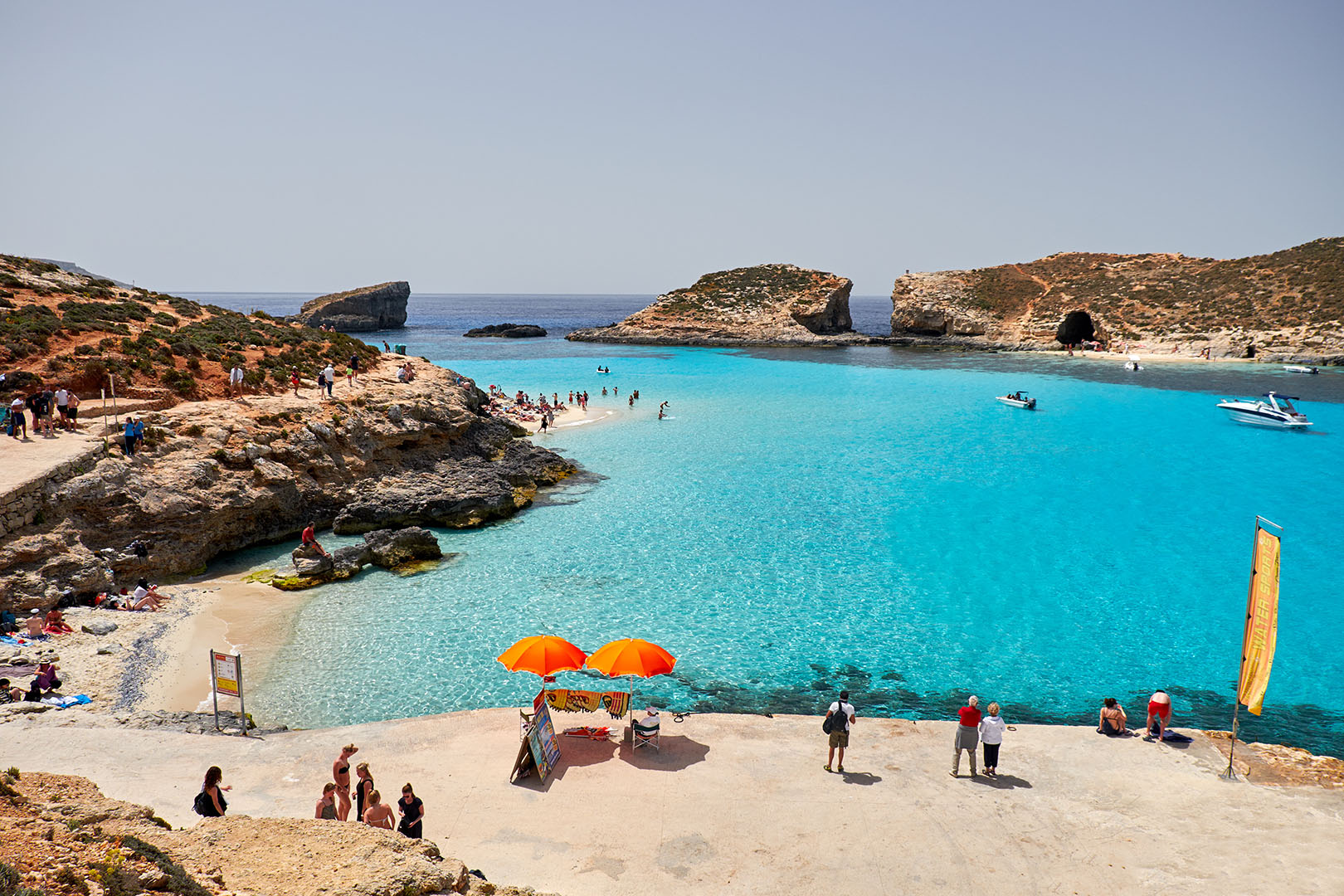Can I live and work remotely in Malta as a digital nomad?
Yes. Malta offers a dedicated Nomad Residence Permit for non-EU remote workers earning at least €2,700/month. The visa is valid for 1 year (renewable), and allows you to live in Malta while working for clients or employers outside the country. English is widely spoken, internet is fast, and nomads typically base themselves in Valletta, Sliema, or Gozo. Expect monthly costs between $1,500 and $2,500, depending on your lifestyle and location.
Malta doesn’t advertise itself loudly—and it doesn’t need to.
This sun-drenched rock in the middle of the Mediterranean has been a crossroads for thousands of years. Phoenicians, Romans, Knights, traders, retirees, wanderers. Now it’s adding remote workers to the list.
If you’re looking for a quiet, compact country where espresso costs less than Wi-Fi, and you can swim in the sea after your last Zoom call, Malta makes a compelling case.
Table of Contents
Digital Nomad Visa Overview
Malta’s Nomad Residence Permit launched in 2021 and was one of the earliest digital nomad visas in Europe. It’s designed for non-EU nationals who want to live in Malta while working remotely.
Who qualifies?
- Non-EU/EEA/Swiss citizens
- Remote workers, freelancers, or business owners with clients abroad
- Monthly income of at least €2,700
- Valid passport, health insurance, and proof of accommodation
- Clean background check
Length & Renewal
- 1-year stay, with option to renew
- Immediate family members can be included
How to Apply
- Apply through Residency Malta Agency
- Submit proof of income, work status, insurance, and housing
- Processing time: around 30 working days
- Fees: €300 per applicant
Housing Tip: While the visa is straightforward, Malta’s small size means housing can be competitive—lock in your apartment before you arrive.
Best Cities for Remote Work in Malta
Valletta
Valletta is a capital that doesn’t pretend to be modern—and that’s part of its charm. It’s tiny, fortified, and full of honey-colored limestone buildings that glow in the afternoon sun. Here, your morning commute might involve slipping through 16th-century archways and grabbing a pastizz from a street cart. The city’s size means you can walk almost everywhere, and the sea is never more than a few blocks away. It’s quiet at night, save for the echo of footfalls on cobblestones and the occasional clink of wine glasses from tucked-away courtyards.
But don’t mistake its charm for convenience. Apartments in Valletta are limited and often come at a premium. Parking is a nightmare, and while there are some coworking spaces, most nomads end up commuting to nearby areas like Gzira or Sliema for better amenities. Still, if you want to live inside a UNESCO World Heritage Site with Wi-Fi and espresso, Valletta is hard to beat. Just don’t expect nightlife that rages past midnight—or a yoga studio on every corner.
Sliema & St. Julian’s
Sliema is where Malta modernized. It’s where old townhouses rub shoulders with glass condos, where delivery scooters weave through roundabouts, and where you’ll find most of the island’s coworking options, serviced apartments, and digital nomad meetups. It’s got everything you’d expect from a seaside city: high-speed fiber, rooftop bars, air-conditioned cafes, and gyms with ocean views. St. Julian’s, just around the bay, is louder—flashier. It’s the part of town that never sleeps, and often doesn’t quiet down until sunrise.
Together, these two form the commercial and social core of remote work life in Malta. But convenience has its cost: rent here can rival Western European cities, traffic is chaotic, and the area can feel crowded in peak tourist season. Still, if you want easy access to everything—coworking, nightlife, restaurants, and transport—this is where you’ll likely end up. You can always retreat to Gozo when you need to breathe again.
Gozo
Gozo is the quiet cousin that never shows up to the party but somehow knows all the good music. It’s smaller, greener, and more traditional than the main island, with dusty farmhouses, wild coastline, and towns that haven’t changed much in a generation. The pace is unhurried. The skies are wide. It’s the kind of place where you start drinking wine at lunch and forget what time it is. Nomads who land here usually aren’t chasing hustle—they’re here for space, stillness, and better sleep.
That said, Gozo isn’t some backwater. The island has invested in infrastructure, with fiber-optic internet available in most towns and a growing (if sparse) number of coworking and coliving options. You’ll want to rent a scooter or car to get around, and you’ll need to be okay with fewer amenities—but if your remote work doesn’t require constant meetings and you’d rather swap Uber Eats for sunset walks, Gozo delivers a kind of peace that’s hard to find on the main island.
Cost of Living in Malta
Malta’s cost of living sits somewhere between Western and Eastern Europe. It’s not inexpensive, but if you avoid the flashiest neighborhoods, it’s manageable—especially for remote workers earning in USD or EUR.
| Expense | Valletta/Sliema | Gozo |
|---|---|---|
| 1BR Apartment (monthly) | $1,000 – $1,600 | $700 – $1,100 |
| Coworking Membership | $150 – $250 | $100 – $150 |
| Groceries (monthly) | $250 – $400 | $200 – $350 |
| SIM/Data Plan | $10 – $25 | $10 – $25 |
| Dining Out (Meal) | $12 – $25 | $8 – $18 |
| Estimated Total | $1,800 – $2,800 | $1,400 – $2,200 |
Coworking & Internet
Despite its small size, Malta punches above its weight in terms of digital infrastructure. Fiber internet is widespread in cities and towns, with speeds ranging from 100–500 Mbps. Mobile data is cheap, and SIM cards are easy to grab at the airport or corner stores.
Top Coworking Spaces
- SOHO Malta (St. Julian’s & Gzira)
- The Hub Workspace (San Gwann)
- Glashaus (Gzira)
- WorkSpace Malta (Valletta)
- Gozo Innovation Hub (Xewkija, Gozo)
Most spaces include backup power, coffee, and air conditioning—essentials for a long-term stay. That said, some nomads choose to work from cafés or their apartments thanks to Malta’s strong home internet coverage.
Lifestyle & Practical Tips
What’s the vibe in Malta?
Think sunbaked stones, espresso in the square, and a bus system that shows up eventually. Malta isn’t in a rush—and neither are most people here. But between beach days, historic ruins, and nights in cliffside restaurants, it’s hard to argue with the pace.
Language
Maltese and English are both official languages. English is spoken fluently by nearly everyone, which makes day-to-day life remarkably smooth.
Transport
Public buses cover the whole island, but schedules can be loose. Ferries and water taxis are a scenic way to hop between cities. Renting a car helps in Gozo, but watch out: they drive on the left.
Healthcare
Malta’s healthcare system is excellent. EU nationals can use the EHIC card; others should carry private insurance, which is also a visa requirement.
Safety
Malta is one of Europe’s safest countries. Violent crime is rare. Scams are uncommon. Just keep your common sense intact, especially in nightlife-heavy areas.
FAQs about Malta for Digital Nomads
Can I work from Malta without a visa?
EU/EEA citizens can live and work without restriction. Non-EU citizens can stay for up to 90 days visa-free, but a longer stay requires the Nomad Residence Permit.
What’s the income requirement?
You must earn €2,700/month (gross) from clients or employers outside Malta.
Can I include my partner or family?
Yes, dependents can be included in the same application for an additional fee.
How long does the visa take to process?
Typically 30 working days, though delays can happen in peak periods.
Is Malta expensive for digital nomads?
It depends. Compared to Lisbon or Barcelona, it’s affordable. Compared to Eastern Europe or Southeast Asia, it’s pricier. The value lies in the quality of life.
Connect with fellow location-independent professionals by joining our exclusive Nomados Digital Nomad Community for ongoing support, insider tips, and updates to enhance your borderless lifestyle.
Malta is for digital nomads who want to slow down—but not fall asleep.
It’s for people who like their workdays with a side of sun, their weekends filled with history, and their cities compact enough to know by foot. It’s not Bali. It’s not Berlin. And it doesn’t care to be.
But if you’re looking for a safe, English-speaking island with solid infrastructure and a legitimate visa option, Malta is worth a serious look.
It’s small. It’s sunny. And it just might surprise you.
